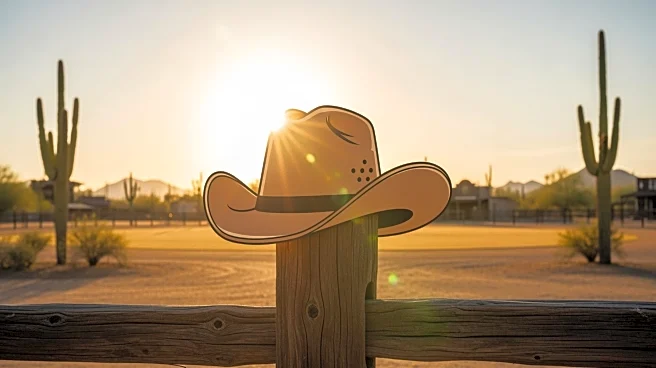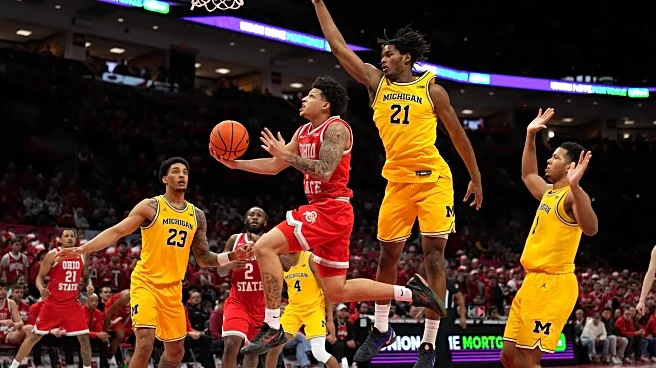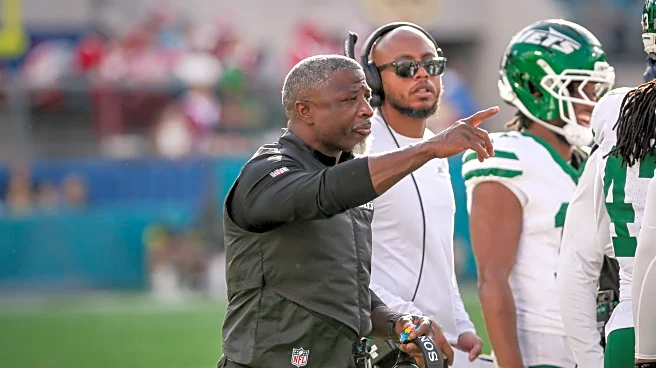What's Happening?
Chase Field in Phoenix, Arizona, typically home to the Arizona Diamondbacks MLB team, is set to host the Hondo Rodeo Fest, turning the area into a 'Cowboy Town' for one weekend in November. Established
in 2024, the event has quickly become a major attraction, drawing over 60,000 fans in its inaugural year. The festival features top-tier rodeo competitions and concerts from artists like Nickelback and Kid Rock. Unlike traditional rodeos, the Hondo Rodeo Fest is not sanctioned by any professional rodeo association, allowing organizers to set unique competition standards and invite select talent. Competitors will vie for substantial prize money, with events scheduled from November 7 to November 9.
Why It's Important?
The Hondo Rodeo Fest represents a significant cultural event, highlighting the popularity and economic impact of rodeo sports in the U.S. By transforming a major sports venue into a rodeo arena, the festival underscores the versatility of such spaces and their potential to host diverse events. The substantial prize money and high-profile concert lineup attract significant attention, boosting local tourism and business. This event also provides a platform for rodeo athletes to showcase their skills outside traditional circuits, potentially influencing the future of rodeo sports and entertainment.
What's Next?
As the Hondo Rodeo Fest continues to grow, it may influence other cities to host similar events, expanding the reach of rodeo sports. The success of the festival could lead to increased investment in rodeo events and venues, potentially altering the landscape of sports entertainment. Stakeholders, including local businesses and tourism boards, may seek to capitalize on the festival's popularity, promoting Phoenix as a destination for diverse cultural events.
Beyond the Headlines
The Hondo Rodeo Fest's unique approach to organizing rodeo events raises questions about the future of traditional sports associations and their role in setting standards. By operating independently, the festival challenges conventional norms, potentially encouraging innovation and diversity in sports entertainment. This could lead to broader discussions about the evolution of sports governance and the balance between tradition and modernity.









